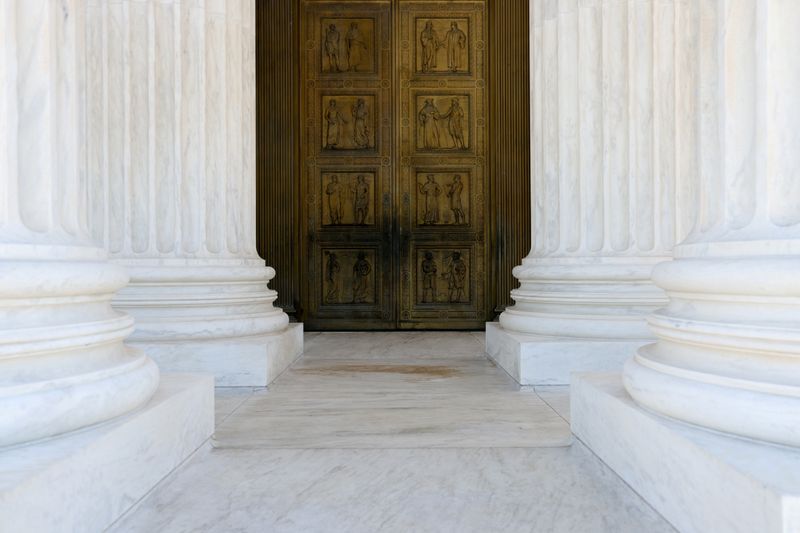By Lawrence Hurley
WASHINGTON (Reuters) - The U.S. Supreme Court on Tuesday signaled it could narrow the scope of a class action lawsuit against TransUnion (NYSE:TRU) in which thousands of people sought damages after the credit reporting company flagged their names as matching those on a government list of suspected terrorists and drug traffickers.
The justices heard arguments in TransUnion's appeal of a lower court ruling that upheld a jury verdict against the Chicago-based company in a class-action suit and ordered it to pay $40 million in damages. Credit reporting companies provide information on an individual's borrowing and bill-paying history to lenders and other businesses.
The legal issue before the Supreme Court is whether the lawsuit, which focused on a federal law called the Fair Credit Reporting Act that requires consumer reporting agencies to provide correct information, should ever have been certified as a class action. The case offers the justices an opportunity to further scale back class actions by requiring stricter criteria for plaintiffs to join, a goal of the business community.
The lead plaintiff, a California man named Sergio Ramirez, and other consumers were incorrectly identified by TransUnion as possible security threats.
During the arguments, some justices indicated there was not sufficient evidence that all of the class members had suffered a "concrete injury" as required when filing such a lawsuit. There were 8,185 class members in the litigation whose names matched names on the government list. At trial it was established only that TransUnion had revealed that information publicly on 1,853 of them.
"I think you have a good argument with respect to the 1,853 ... but I'm more concerned about 6,632 whose information was not in essence published," conservative Justice Brett Kavanaugh told the plaintiffs' lawyer, Samuel Issacharoff.
Conservative Justice Samuel Alito questioned TransUnion's lawyer, Paul Clement, on his claim that for most of the class members no harm was done.
"The class members whose information was disclosed to third parties certainly had reasons to worry about that, wouldn't you say?" Alito asked.
The justices possibly could send the case back to lower courts for further litigation on how many plaintiffs could potentially recover damages.
Ramirez sued in federal court in 2012 after an incident the previous year at a Nissan (OTC:NSANY) automobile dealership. When the dealership performed a credit check using TransUnion, the report noted that Ramirez's name appeared to partially match two names included on a federal government list of people barred from conducting business in the United States because of national security concerns. Neither person was Ramirez.
Although his wife was able to purchase a vehicle, Ramirez said he was embarrassed and shocked and ended up canceling an overseas vacation over concern about the list. After requesting a copy of his credit file, TransUnion sent him a separate mailing stating that his name was matched with two on the list.
The lawsuit noted that the mailing that mentioned the match incorrectly stated that such notification was not part of the actual credit report that creditors or employers would see when, in fact, it was part of it.
TransUnion argued that merely being sent the mailings was not a concrete injury.
A jury in 2017 awarded damages of around $60 million to the class as a whole, including $52 million in punitive damages. The San Francisco-based 9th U.S. Circuit Court of Appeals in 2020 upheld the jury verdict but reduced the damages to about $40 million.

The business community has long sought to curb class action lawsuits, which can lead to big payouts to plaintiffs and their lawyers. TransUnion is backed in the case by various business groups such as the U.S. Chamber of Commerce as well as companies including The Home Depot Inc (NYSE:HD), eBay Inc (NASDAQ:EBAY), Facebook Inc (NASDAQ:FB) and Alphabet (NASDAQ:GOOGL) Inc's Google.